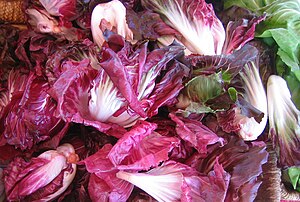Ramadan, the month when God revealed the Holy Qur’an, is a time of deep reflection and contemplation for Muslims. Considering past accomplishments and where our life’s journey is leading. Ramadan is a good time for us to make changes for the better, an excellent opportunity to turn over a new leaf, shedding any old bad habits.

Sufi meditation
Walking in the footsteps of the prophets
"O you who have attained to faith! Fasting is ordained for you as it was ordained for those before you, so that you might remain concious of God" Holy Qur’an (2:183) Asad
"Moses was there with the LORD forty days and forty nights without eating bread or drinking water. And he wrote on the tablets the words of the covenant - the Ten Commandments." Exodus (34:28) NIV
Muslims aim to be walking in the footsteps of prophets and saints. While Ramadan is unique to Islam, most religions have their traditions of fasting. We spend much of our lives concerned with mundane activities, work, meals, television, fashion. Without even realising it, time passes, often wasted on nothing special. Fasting helps us to regain self-discipline and self-restraint.
Tayyaba Mosque
Realising the difficulties of others
An important role of fasting, is to help us realise the difficulties and suffering of others. Caring for those in need is so important, charity is the third pillar of Islam. One important benefit of fasting, is we learn what it is like to feel hungry. Once we realise this, hopefully we will show more compassion for those in need, for those who have no food to break their fasts, or cannot afford to buy it.
The rose blooms amid thorns
Sufis are people striving for an inner, personal experience of the Divine. Seeing the basic practices of Islam as only the first step to this higher goal. To allow one’s soul to grow and ascend, one needs to strive against the bad characteristics of one’s ego. In Sufism, the rose is symbolic of our soul. As like the development of our own souls in this world, the rose blooms amid thorns.
Seeking to lose themselves in the Divine
While all Muslims are on a quest for inner peace, Sufis seek to lose themselves in the Divine. Fasting is an important stepping stone on this inner spiritual journey. Sufi saints perform the greatest form of fast, while others go without food, they exercise the fasting of their mind. Put another way, they do not think of anything except God.
Prayers and meditation
Sufis consider their existence in this world as only the seed, for their existence in the next world. In a similar way to how small acorns grow into mighty oaks, we reap what we sow. In addition to their daily prayers, various forms of meditation are practised by Sufis, enabling them to become more conscious of the Divine.
"unto everyone who is conscious of God, He [always] grants a way out [of unhappiness], and provides for him in a manner beyond all expectation" Holy Qur’an (65:2-3) Asad
Laylat al-Qadr
God has promised great rewards for those who fast. One of these occurs during the last ten days of Ramadan. During the night of Laylat al-Qadr, for one who has fasted perfectly, God sends an angel to personally meet this person, and grant them any wish they desire.
Fasting is an enormous blessing, it is a great way of improving one’s self discipline and physical health, yet at the same time conveys immense spiritual benefits.


 Sufi meditation
Sufi meditation
